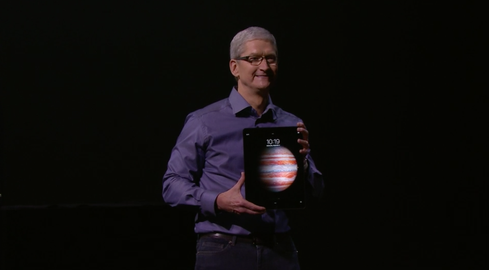Apple's Court Win Over Samsung Still Leaves Questions
Apple may have won the latest round against Samsung in court, but the implications of the case are still evolving.


iPhone 6S, iPad Pro, TV, Watch: Apple's Fall Lineup
iPhone 6S, iPad Pro, TV, Watch: Apple's Fall Lineup (Click image for larger view and slideshow.)
This week Apple won the latest round in the legal battle with Samsung that has been going on since 2011. However, while Cupertino and its lawyers may have prevailed this time, the implications of what these rulings mean is still evolving.
In Washington, D.C., the US Court of Appeals for the Federal Circuit ruled 2-1 that Apple would be able to stop Samsung from infringing on its patents by blocking the sale of the smartphone models that infringed them.
This appeal arose from the actions in the case that were taken in August 2014 by Judge Lucy Koh of the US District Court for the Northern District of California, who had been overseeing the original case. At the time, she refused Apple's request for a permanent injunction to stop Samsung from selling the infringing features that resided on its smartphones.
The infringing features include slide-to-unlock, autocorrect, and quick links, all of which were previously found to infringe on US Patents 5,946,647; 8,046,721; and 8,074,172.
In the ruling, the two-judge majority found: "The district court erred when it found the first two […] factors weighed against an injunction. Although the evidence may not make a strong case of irreparable harm, Apple has satisfied the causal nexus requirement and therefore established irreparable harm."
The court also ruled that: "Given this, the district court abused its discretion when it did not enjoin Samsung's infringement. […] We vacate the district court's order denying Apple's proposed injunction and remand for further proceedings consistent with this opinion."
The importance of all this is not what happens to Apple and Samsung, who have been sniping at each other for years in court in an attempt to gain a bigger advantage in the smartphone market, but what it implies for the rest of the tech community. Specifically, the case has never clearly found what technology patents actually mean, since innovations are usually built on top of older ideas and designs.
At what point can a company patent something? When does innovation take over to create a new technology? Neither Samsung nor Apple invented the smartphone. The two companies built on older ideas and innovations to become the dominant players.
Many are watching this case carefully and some may be emboldened to consider seeking injunctions on products they believe to be infringing. In other words, the case is not so much about innovation, but about keeping a slight advantage that can help secure marketshare.
[Read more about the Samsung and Apple patent fight.]
The appeals court sent the case back to Judge Koh's court in San Jose, Calif., with the directive that it must allow an injunction request to proceed. Showing "irreparable harm" is the legal bar a party must demonstrate in order to block sales of an infringing product.
It has been reported that Samsung will ask the full five-member court to review its decision. Because the latest device Samsung sold that was previously judged to be infringing is the three-year-old Galaxy S3, the practical effect on of an injunction would not be horrific. By introducing non-infringing devices, Samsung may have already planned for such a ruling.
While the ruling this week favors Cupertino, the courts have not always sided with Apple in its appeals.
In May, US Court of Appeals for the Federal Circuit in Washington, D.C., took away $382 million from a $930 million judgment against Samsung stemming from a 2012 verdict. It also remanded that case back to the district court, where the participants remain involved in it.
The original case is Apple Inc. v. Samsung Electronics Co. Ltd. et al.
About the Author(s)
You May Also Like
How to Amplify DevOps with DevSecOps
May 22, 2024Generative AI: Use Cases and Risks in 2024
May 29, 2024Smart Service Management
June 4, 2024







